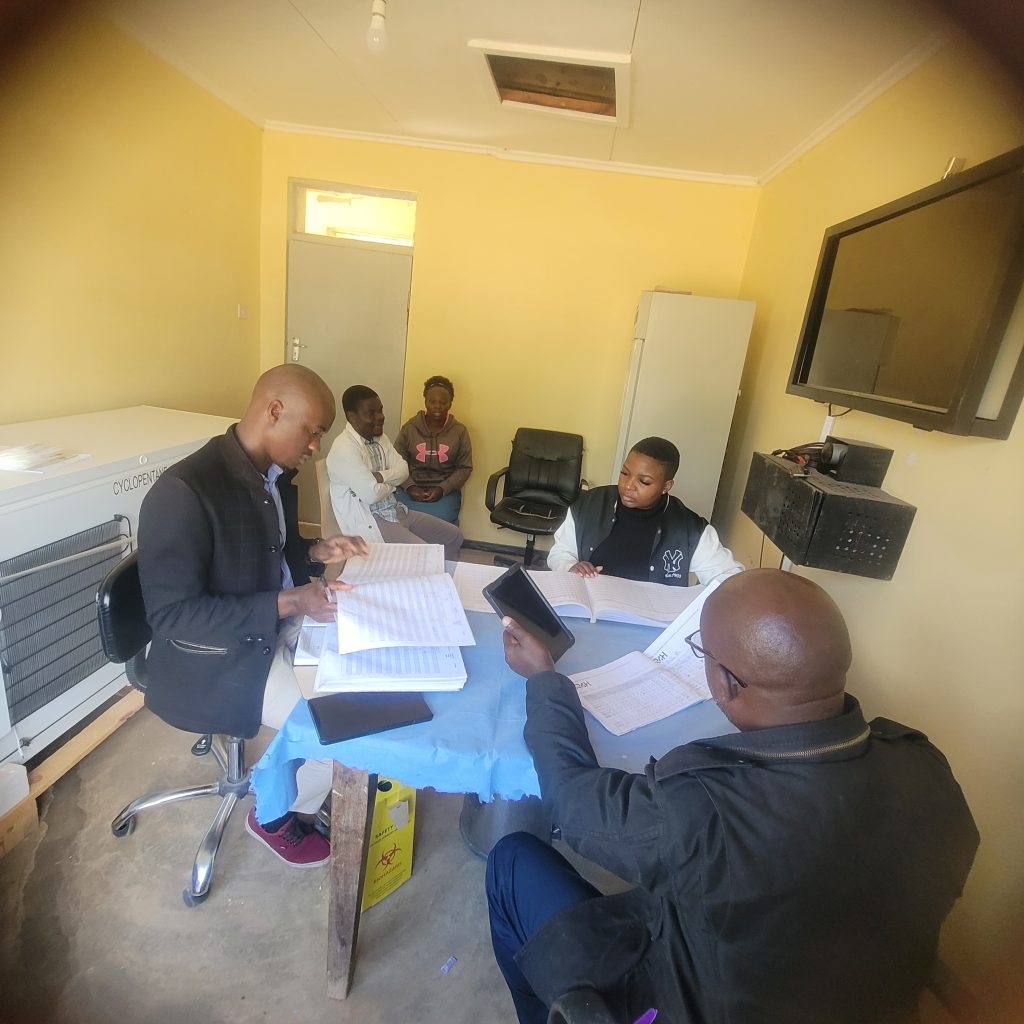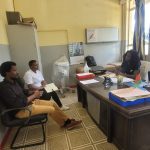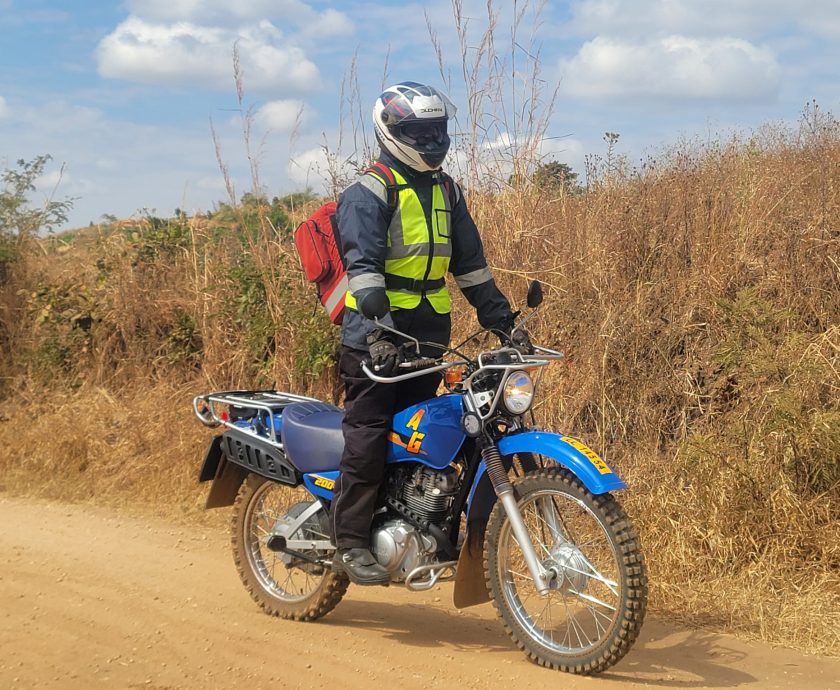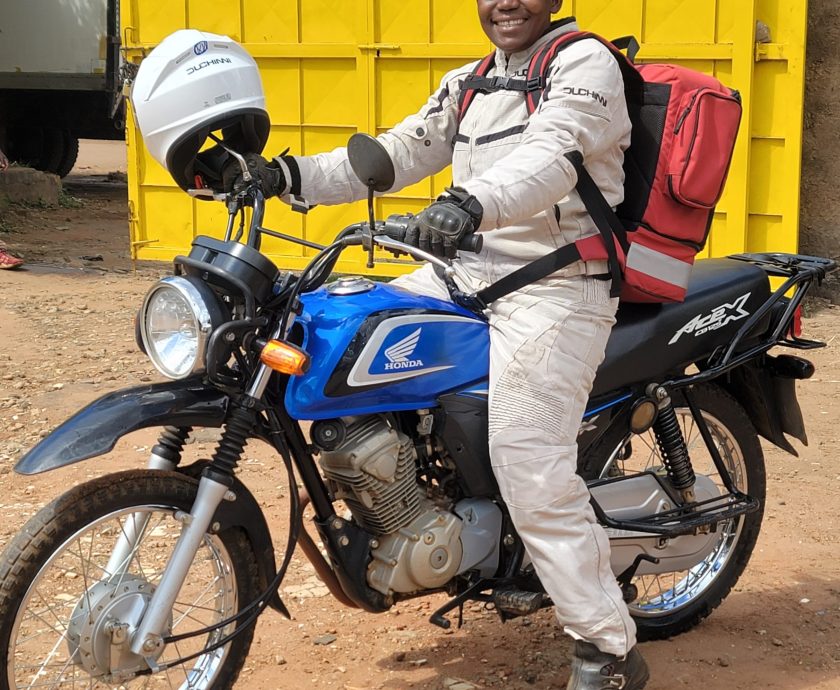In the northern region of Malawi, the R4H medical sample transport program has improved healthcare delivery, particularly in remote areas like Chitipa. Using dedicated motorcycle couriers who are the backbone of this project, this initiative has significantly improved the efficiency of transporting critical medical samples, including HIV Viral Load and Tuberculosis (TB) sputum samples, from health centers like Nthalire, located 125 km from Chitipa District Hospital, and others like Kameme, Kapenda, Chambo, Misuku, and Wenya, just to mention a few.

Levi Mzumara (R)- Sample Transport Coordinator for Northern region, Angellina Mwase, Programs Manager- Quality Assurance (M ), and Daniel Ng’ona – MEAL Officer (L) with Besten Banda, Laboratory Technician ( in white coat) and his colleague during the Spot check and Data Quality Assessment exercise at Nthalire Health Centre in Chitipa
Despite challenging terrains, R4H couriers showcase untiring commitment, ensuring timely collection and delivery of samples to the hub and molecular laboratories and transporting the results back to the health centers. This seamless coordination not only facilitates the swift return of test results but also empowers healthcare workers to administer appropriate treatment to ART clients and TB patients on time. In June 2025, during an interaction with healthcare workers during the joint spot check and Data Quality Assessment exercise championed by R4H programs and Monitoring, Evaluation, Accountability and Learning (MEAL) team, Besten Banda, laboratory technician at Nthalire Health Center, commented, “The couriers are very important in connecting our laboratory to the mother laboratory, enhancing our capacity to provide quality healthcare.”
Luke Mbale, an ART Clerk at Chambo Health Center, added, “The sample transport program ensures timely reception of results, improving healthcare for ART clients.”
Beyond sample transportation, these couriers also assist in urgent deliveries of reports and other hospital necessities like reagents, further complementing their role as links in the healthcare system. This is how innovative the sample transport program can enhance healthcare access and outcomes in underserved communities, making a compelling case for continued partnership with implementing partners and support from stakeholders and donors.











